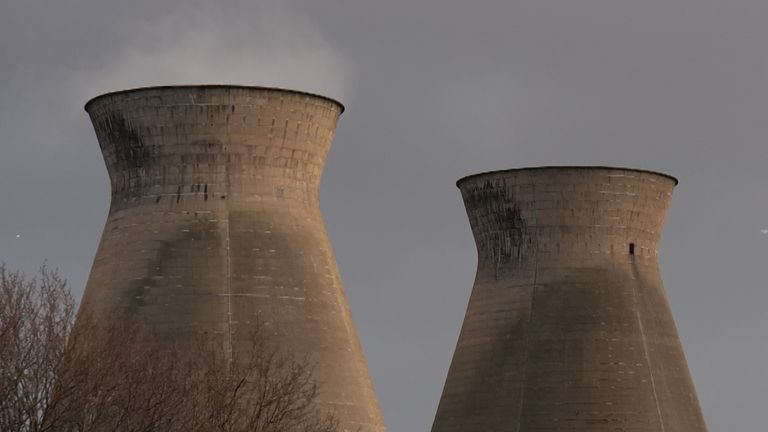Independent experts have concluded that Scotland’s 2030 climate change target for reducing greenhouse gas emissions is now unachievable.
A new report from the Committee on Climate Change (CCC) says the measures needed to achieve this goal are now “beyond credibility”.
The CCC said that for Scotland to meet its target of reducing harmful emissions by 75% by 2030, emission reduction rates in most sectors would need to increase ninefold before the end of the decade.
“The Scottish Government is failing to deliver Scotland’s ambitious climate targets,” the CCC said in a scathing report to the Scottish Parliament.
Scotland Eight of the past 12 annual targets for reducing emissions of greenhouse gases that contribute to global warming have been missed.
The report also noted an increase in emissions in 2021, which was linked to below-average weather that year and an increase in transportation emissions after 2021.Coronavirus.
The CCC also highlighted that Scotland’s draft new climate change plan, which was due to be published later in 2023, has been “delayed”.
‘Short-term decline’
As a result, it said “there is no comprehensive delivery strategy to meet future emissions targets”.
The CCC called on ministers to make the announcement “urgently” and insisted “the action remains well below what the law requires”.
The independent body advises governments across the UK climate changeIt said that the 2030 target was now “not credible” and that the Scottish Government should seek to “build on its ambitious ambitions and implement policies that can achieve the 75% emissions reduction target as early as possible”.
The report said: “By the end of this decade, Scotland will need to: triple the rollout of public electric vehicle charging points, reduce car traffic by 20%, increase heat pump installation by at least 13 times and double onshore wind capacity.
“By the mid-2020s, woodland creation needs to more than double and peatland restoration rates need to increase significantly.”
“No strategy”
The report also said that “Scotland does not yet have an aviation industry decarbonisation strategy” and that a plan is “still needed” to deliver on the commitment to make 30% of Scottish Government-run ferries low-emissions by 2032.
As for construction, the CCC said that while around 6,000 domestic heat pumps will be installed in Scotland by 2023, “this will need to increase to more than 80,000 units per year by the end of this decade”.
Peatland restoration targets have been missed for the fifth year running, with ministers told “Scotland is well off track to meet the 2025 70% recycling target, with no progress on recycling over the past 10 years”.
However, the report said “Scotland has made some progress in delivering renewable energy generation”. The CCC said the Scottish Government was on track to meet its offshore wind target by 2030, but that this year’s onshore wind target was “slightly off track”.
No matter where you get your podcasts, click to subscribe to Tom Heap’s ClimateCast
Net-zero emissions minister Myrie McCarron said: “The Climate Change Committee has been clear that achieving the 2030 legislative targets agreed by cross-party parliament will be extremely challenging and may not be feasible.
“We remain fully committed to our goal of achieving net zero emissions by 2045, and in 2024-25 alone we have committed £4.7 billion to support our climate change targets.
“Scotland is already halfway towards its net zero carbon emissions target and continues to decarbonise faster than the UK average.”
Read more Sky News
Post-2023 ‘world red alert’ plagued by climate ‘pain and madness’
Government warns that low utilization of heat pumps will hurt emissions reduction efforts
Ms McCarron highlighted that Scotland had created around 75% of the UK’s new woodland in the past five years.
She also noted that more than a third of the population benefits from free bus travel and more than £65 million has been invested to support the installation of around 2,700 public electric vehicle charging points.
The Scottish Government also wants to reduce vehicle miles driven by 20% by 2030 and decarbonise buildings through the proposed Building Heating Bill.
Ms McCarron acknowledged “the most difficult part of this journey is ahead of us” and said the Scottish Government expected “real cuts” to its UK capital funding.
She added: “We are also facing opposition to modest measures to address the crisis, such as low emission zones, workplace parking and deposit return schemes, at a time when consensus is crucial to ensuring we have a sustainable planet.
“We will now carefully consider the report’s recommendations and our next steps, including legislative options, before making a formal response.”
Follow us on Google news ,Twitter , and Join Whatsapp Group of thelocalreport.in
